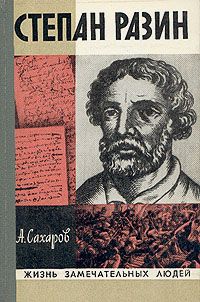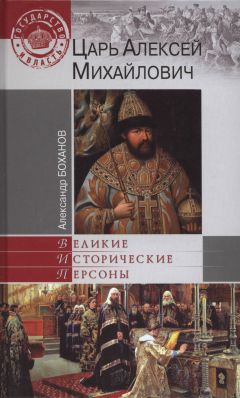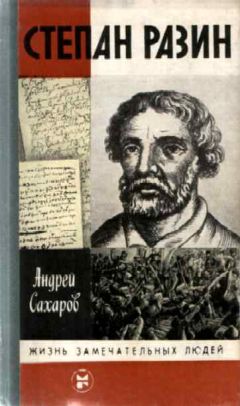A NARRATIVE OF THE GREATEST VICTORY KNOWN IN THE MEMORY OF MAN: BEING THE TOTAL OVERTHROW OF THE GREAT REBEL STEP AN RADZIN, WITH HIS ARMY OF ONE HUNDRED THOUSAND MEN, BY THE GRAND GZAR OF RUSSIA, AND HIS RENOWNED GENERAL DOLERUCKO
WRITTEN BY AN ENGLISH FACTOR, FROM THE PORT OF MOSKOW.
The Narrative
Most worthy Employer,
Sir,
The daily Fears we have long here entertain'd, rendred our lives the next event (in Reasons expectation) to have been inhumanely torn from us, and, with us, your and the rest of the worthy Employers Estates to have been ransacked, and swallowed up. Which Cares now to distrust unprevented, were great impietie: Providence hath so protected us, and Ensured yours, that, were not Miracles ceased, this sudden turning our Weeping into excess of Joy, might be esteemed so wonderful.
Nor were those timerous motives the jealousies of us Strangers alone: for, few days antedate of these, the increased power of the Rebel Radzin spread so vastly in Campaigne before this Town and Metropolis of this Country, that the great Dukes best subjects had not else before the eyes of their imagination, but the inevitable extirpation of this Empires Grandeur; until, by a very late Result, at the Congrawize or Council in Moscow, twas resolved the General Dolerucko should give them Battel. Which resolution, in its first birth, was favour'd by the Czar's quiet pass by the Rebels, to joyn with the General; which the Rebels might with ease have prevented; whereby they must have lain at so incommunicable a distance, that they could not have afforded a timely assistance one to other.
But, being thus happily joyn'd, on the 13 of the Kalends of February 16 70/71, upon the great Plain of Wariaschal, some five caitans or miles from Moscow; which goodly Plain of the world is Croned on each side with stately cloud-breaking Hills, the foot of each beautified with a plenteous River; this Plain holding their distance six miles one from other, so enduring it self in a level Valley from Moscow sixty miles to Wrackoza, where her fruit-affording streams, like sisters in Bounties love, twist themselves into the Ambonine Ocean, welcome (from their long travel in circulation run) into their first mothers womb again.
Here Madam Nature likewise, desirous to take her children home, had provided this fair and so large a Tomb, whilst on her aged hoary head, and dewie face, by Nine that morn, the Imperial Forces were on Wariaschal's (other days pleasant, now bloudy) Valley drawn up; whose strength, in two Bodies managed, whole and compleat, consisted of more then Eighteen thousand Horse, commanded by known valiant Conductors, and Infantry of the double-numbred force, led by Commanders of like unquestionable gallantry; with so great Ammunition-stores, as might some days employ their braving mindes; an Artillery-Train of 28 Field-Cannon, 18 Demy, 26 whole Culverin; with Saich, Partridge, and Murderes, on Carriage, above 40.
Thus equipped or fitted, drew down their Bodies, the Right by the General Dolerucko, the other by the Czar commanded; Faced the Enemy, whose more numerous Body by 20000 Horse and Infantry, in their own thoughts securely advance, in like Bodies, the Right led by the grand Rebel Stepan Radzin, the other by the great strengthner of this unhappie Feud, the Patriarch Demainzone, backed by a forcible Train of Artillery.
By Ten a clock, in horrid peals of shot, were so neer approached the Right Wings, (the one by Authority, the other by Numbers doubtless emboldned) that the Horse of the Rebels, by desperate Charge, and continued hours fresh assault, cause the General Dolerucko give retreat: but his true Reserve, and the Imperial Guard, with the Artillery well plyed, so galled his Plumes for some time; such a populous Wing, and on pursuit, was never heard of to be better pluckt whilst then. The Czar, not being out of action, and seeing the whole Diadem at stake, left the sharp Dispute he was engaged in with Demainzone, and fell into the Rere of the pursuant the Rebel Radzin, with so powerful management, as shook his mounted body, and over ran his Infantry to all wonder. The Patriarch mistaken in the suddenness of his wheeling, expecting he intended by the change of ground into his Flank, wheeled to the contrary to provide for his reception: and the Army spreading so fully the Plain, ere he could well recover his rash motion; the Rebel Radzin, unassisted, had neither ground for handsome retreat, nor safety in flight; but indeed (with unheard-of resolution) forced (like the son of Despair) his pass between the buryings of the Czar's Infantry, into his first ground again, and joyned with the Patriarch, commanding some retreat, to compleat his battered Companies. In this Onset were lost five of the Great Dukes Colours, three of Horse, and two of Foot; and thirteen of the Rebels, with the return of unpitied shattered Files.
Then the truly-gallant-spirited Moscovian Generals foreseeing the Rally of the Rebels might yet be managed with more then equal figures, took the advantage to cut off the cyphers, thereby to lessen the sum; drew their whole Body upon their Rere with great success in slaughter, till the Rebel Radzin again faced their Front, and by renewed fury continued battel from twelve a clock till three with such vicissitude of fate, Sir, it cannot here be expressed; but unquestionably the dispute was so hot, that these Armies came to change blows, some Regiments intermixt rudely one amongst another. And then believe so prodigious a Rebellion was never so quasht in less then seven hours: for by four a clock in the* afternoon, the General Dolerucko had the clear possession of the plain for four miles pursuit on the Rebels ground: and then night drew on her sable veil, under which covert the left scattered Rebel-troops, unarmed, hid their despairing heads; which the Generals next days pursuit for sixteen miles found, and totally discomfited, with the jloreat of Victory, the taking of the Head-rebel Radzin, whose to-be-considered punishment will be in lingering Torments, to the example of all Rebels and their Coadjutors in this part, and I hope of the whole world. The slain of the Dukes Army were more then 7000, of whom the Major-General is the onely great eminent person, of whom in the next you shall have particular: on the Rebels party more then 16000, with 24000 onleads to this Irruption taken prisoners, with above three hundred Carriages and Artillery.
Sir, this is the nearest to the truth I can render by advice: but ampler Victory hath not been obtained against a body of 100000 men in the memory of man. How much my weakness may lessen the glory of the action, when the more accurate pens of this Factory may gild this welcome News from the golden nib of elegance, and with queint and pathetick expression suiting every passage, I am afraid to know.
So wishing the King my Soveraign, People and Country, ever protected from those bosom-fears we here retained, and to all Rebels semblable success, and your acceptance of this abortive of your command in all advice private or publike, but really the exactest yet known in this matter he is able to commend, who desires to be thought (Sir) in all accompts punctual, and ready to justifie himself.
Yours devoted
Moscow, Febr. 15 70/17
ПОВЕСТВОВАНИЕ О ВЕЛИЧАЙШЕЙ НА ПАМЯТИ ЧЕЛОВЕЧЕСТВА ПОБЕДЕ, ИЛИ ПОЛНЫЙ РАЗГРОМ ВЕЛИКОГО БУНТОВЩИКА СТЕПАНА РАЗИНА И ЕГО СТОТЫСЯЧНОЙ АРМИИ ВЕЛИКИМ ЦАРЕМ РОССИИ И ЕГО ПРОСЛАВЛЕННЫМ ГЕНЕРАЛОМ ДОЛГОРУКОВЫМ
НАПИСАНО АНГЛИЙСКИМ ФАКТОРОМ ИЗ МОСКОВСКОГО ПОРТА
Достопочтенный хозяин!
Сэр!
Долгое время мы здесь ежедневно пребывали в страхе, что с минуты на минуту (как подсказывал разум) нас бесчеловечно лишат жизни, а имущество ваше и других достопочтенных хозяев разграбят и присвоят. Не верить в то, что отныне этим тревогам пришел конец, было бы дерзким безбожием: провидение так защитило нас и обезопасило ваше имущество, что если бы времена чудес не миновали, то внезапный наш переход от слез к огромной радости можно было бы воистину почитать чудом.
Не только нас, иностранцев, терзали эти опасения, ибо несколькими днями раньше увеличившееся войско бунтовщика Разина расположилось на равнине под столичным городом этой страны столь большим числом, что верным подданным великого государя воображение рисовало лишь один возможный конец – неизбежное падение величия этой державы, пока совсем недавно на Congrawize, или Совете, в Москве не было решено, чтобы генерал Долгоруков дал им [бунтовщикам] бой. Таковому решению при его принятии благоприятствовало то, что царь [с войском] незаметно прошел мимо бунтовщиков на соединение с генералом, чему бунтовщики могли бы легко воспрепятствовать, и тогда они [войска царя и Долгорукова] располагались бы на таком расстоянии, что не могли бы сноситься и оказать друг другу своевременную помощь.
Но они удачно соединились в 13 день февральских календ 16 70/71 (До 1752 г., когда в Англии парламентом был введен григорианский календарь, в быту началом года считалось 1 января, но юридический н церковный год начинался 25 марта. В период между этими датами было принято употреблять двойное обозначение года. У древних римлян календами назывался первый день каждого месяца, но автор употребляет это слово в смысле месяц (примеч. переводчика).)на обширной равнине Wariaschal, приблизительно в пяти caitans, или милях, от Москвы. С каждой стороны этой прекрасной равнины возвышаются величественные, туч достигающие горы, а подножие каждой украшает полноводная река. Они отстоят одна от другой по равнине на шесть миль, а она простирается долиной на шестьдесят миль от Москвы до Wrackoza, где ее породненные своею щедростью плодоносные потоки, извиваясь, впадают в Аmbonine океан, радостно принимаемые (после долгого путешествия вкруговую) снова в чрево своей матери.
Здесь госпожа природа, желая принять детей своих в лоно свое, воздвигла прекрасную и огромную гробницу. И вот на ее седой древней главе и влажном от росы челе к девяти часам утра в долине Wariaschal (ранее приятной, а ныне обагренной кровью) были выстроены двумя отрядами правительственные войска, которые в совокупности насчитывали более восемнадцати тысяч всадников под началом известных своею храбростью командиров и вдвое больше пехоты, возглавляемой столь же неоспоримо мужественными командирами, а также имели такой большой запас военного снаряжения, которого этим горячим головам могло хватить на несколько дней. Артиллерия состояла из 28 легких полевых орудий, 18 средних и 26 больших кулеврин и свыше 40 бомбард, малых мортир и других орудий (saich) на повозках.
С таким вооружением двинулись эти отряды – правый – под командованием генерала Долгорукова, а другой – под командованием царя – навстречу неприятелю, чьи силы, превосходившие на 20 000 всадников и пехотинцев, продвигались, чувствуя себя уверенно, также двумя отрядами, правый возглавлял великий бунтовщик Степан Разин, а другой – патриарх Demainzone, активный пособник этой гибельной смуты; их поддерживала мощная артиллерия.
К десяти часам в ужасном грохоте стрельбы правые фланги (одному придает храбрость то, что он выступает на стороне правительства, а другому, – без сомнения, его численность) настолько сблизились, что стремительный налет и продолжавшаяся час сильная атака конницы бунтовщиков вынуждают генерала Долгорукова отступить, но его верный резерв и царская гвардия, а также хорошо поработавшая артиллерия за некоторое время поубавили ему [крылу разинского войска] перьев. Никогда еще не приходилось слышать, чтобы такой многочисленный фланг, когда он преследует, лучше ощипали, чем в этом сражении. Царь, также участвуя в бою и видя, что корона находится в опасности, прекратил упорную схватку с Demainzone и нанес преследователю, бунтовщику Разину, такой сильный удар с тыла, что разгромил его всадников и смял пехоту. Патриарх, неправильно поняв его внезапный круговой маневр и думая, что, меняя позицию, он намеревается ударить ему во фланг, развернулся в противоположную сторону, готовясь его встретить, и армия сильно растянулась по равнине прежде, чем он смог исправить это безрассудное перестроение. Бунтовщик Разин, лишенный помощи, не имел позиции для достойного отступления и не мог найти спасения бегством; но (с неслыханной решимостью) прорвался (как сын отчаяния) сквозь пехоту царя (the buryings of the Czar's Infantry) на свою первоначальную позицию и соединился с патриархом, скомандовав [затем] отступление, чтобы пополнить свои поредевшие роты. В этом бою великий государь потерял пять знамен: три – конных войск и два – пехотных; бунтовщики – тринадцать, а их шеренги вернулись безжалостно побитыми.




